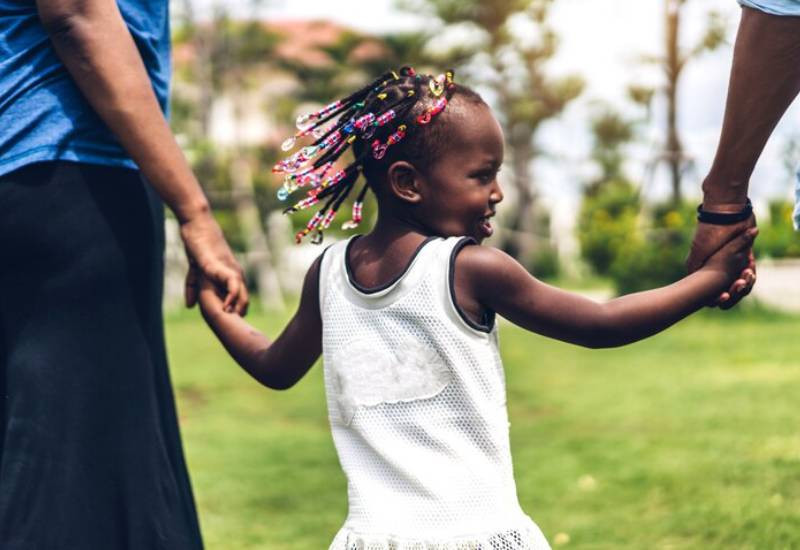When he was born last February, he was named Georgios Apollo Konstantaras. ‘Georgios’ after his grandfather, “Who is an awesome and good hearted man; a man worth emulating,” says his mother Lizz Njagah Konstantaras. ‘Apollo’, in Luo dialect, means heavenly.

Were they short of options, you could ask. No; if names were subatomic they would easily fill an ocean. There is a plethora of other options: like Bighead Otoyo Konstantaras. But no: Bighead is as ludicrous as it sounds and Otoyo, in Luo, refers to a hyena.
So, their child, they declared, would be a good man with a heavenly stature: not an airhead of a man preying on the gullible; a man with an insatiable appetite for what isn’t rightfully his.
For the couple, finding a name that befits their bundle of joy was akin to determining his destiny. Lizz says: “Names have influence; they mean something; they shape someone’s trajectory. As a mother I give my child a name that says of his goodness; a name that reflects positivity and does not associate with a vice.”
Every parent can recall the sombre soliloquy, ‘who shall I call my baby?’ It is at such a time that a name comes under forensic spotlight. And for women with this school of thought a name may as well be the unforeseen hand that directs life.
Kenyans, traditionally, are named after past generations – preferably grandparents. Indeed, tales abound of mothers demanding for their children to have babies. The grandchild, they know, will bear their name – carry forth and propagate the legacy attached to the name.
It is a culture that is in synch with our psyche and may take generations to fizzle out.
But still, what is in a name? Why should parents haggle over whether to name a child after a president or a pop star?
In actuality, it is highly unlikely that the children named Barack Obama, after the US president, will even set foot on the Whitehouse lawn. Heck, they may never come within borders of America.
“A name is as important as parents choose to let it determine the child’s direction during growth,” Catherine Mbau, a psychologist, says.
In essence though, Catherine says, names are abstract: one may choose to make anything out of them – anything whether good and bad.
But don’t tell that to Lynette Munyali. As a devout Christian, Lynette nearly declares that names carry more than superficial meanings. “Names espouse destiny,” she says.

The name she bestowed her daughter, Ladasha Belle, means God’s beautiful gift. Ladasha is also called Wambui, after her grandmother, who, according to Agikuyu customs (her husband’s community), she should be named after.
“I wouldn’t name my child after a thug; or a murderer; or a thief. Biblically words have meaning. A name is a word. But if I really have to name my child after someone – like culture dictates – whose behaviour is questioning the least I could do is pray to sanctify the name first,” Lynette opines.
Lynette’s sentiments are arguably shared among bible-carrying Jesus-loving born again Christians.
David Figlio is one man who has demonstrated passion in studying the relationship between names and the trajectory one’s life path takes. The professor of economics and education at Northwestern University in USA has conducted research on this subject and determined that names actually have consequences.
His findings, published by America’s National Bureau of Economic Research, perhaps lends credence to the worries expressed by Lynette and Lizz.
Parenting expert and author, Roselyn Kigen, says while names are functional as forms of identity, particular perceptions about names tend to have a bearing on how life turns out for an individual.
Take for instance, Taabu, a Swahili name meaning ‘troubles’. “This child, as the name suggests, may experience tribulations. It could be that the culture they grow in serves them up according to the name. It is mysterious yet so palpable in the psyche,” Roselyn says.
Mbau thinks the effect of a ‘bad’ name is psychological. Just as clairvoyance cannot predict – in reality – whether one becomes a CEO or a CEO’s House help, no one is tethered to the intricacies of an ugly name.
Mbau says it is parents who drum a name into a child and by extension, character.
You behave just like your grandmother; you were named after her. You are so aggressive just like your grandfather. The aunt you were named would have done exactly like you did.
“Parents are constantly bombarding children with ideas of who they are or who they should be. That is what registers in a child’s mind and that is what they tend to be,” Mbau observes.
But still, what is in a name?
Christine Khasina-Odero, the Managing Director of Supamama, named her son Miles Malowa. “’Miles’ means courage of a soldier. His grandfather, Malowa, was a soldier in the world war. These are values I want him to epitomise,” she says.
Christine cannot withstand the name Dick – whether in short or full form. It is a name, she says, would make her son the subject of ridicule by his peers and this may have a negative effect.
Like Christine, Lizz believes that a name that would make a child the target of vile and obnoxious remarks is a bad choice.
What of nepotism, racism, tribalism: Do these vices unfairly put particular people on the firing line because their name isn’t the ‘Right’ one?
In one study, Figlio analysed the effect a name had on children with “linguistically low-status” names. He found that teachers treat kids with low-status names differently: They’re more likely to be referred for special education, less likely to be recognised as gifted and they perform poorer in tests.
In Kenya, Roselyn laments, one’s last name (like one prominent politician suggested) may betray them. “It could be the red mark on the forehead: spelling that they don’t deserve to be treated as equals. It happens every day and it is sad,” she says.
But still, what is in a name? Can it predict where one is headed? Will it open doors and offer one opportunities?
 The Standard Group Plc is a multi-media organization with investments in media platforms spanning newspaper print
operations, television, radio broadcasting, digital and online services. The Standard Group is recognized as a
leading multi-media house in Kenya with a key influence in matters of national and international interest.
The Standard Group Plc is a multi-media organization with investments in media platforms spanning newspaper print
operations, television, radio broadcasting, digital and online services. The Standard Group is recognized as a
leading multi-media house in Kenya with a key influence in matters of national and international interest.










